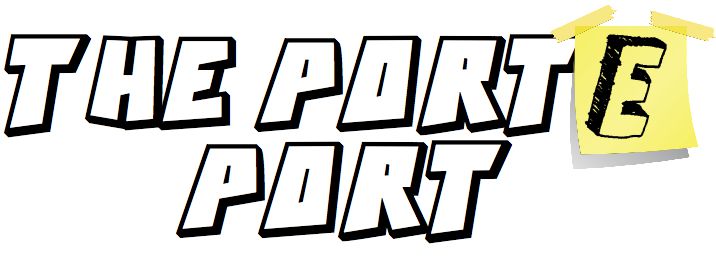How to Beat Writer's Block (By Playing D&D)
Here’s a personal confession:
When I first got serious about writing, I thought people who said they had writer’s block were full of shit.
I thought they were being lazy. Or weren’t trying very hard. Mostly, I thought people just wanted attention on social media.
Oh, past Chris. Young fool. Only now do you understand.
Anyone who has tried to write for more than a week knows I was an idiot.
Writer’s block is very real, and it sucks.
I don’t need to explain to you how frustrating and anxiety-inducing it is to sit down, finally making time to write, and nothing comes out.
You type a sentence or two–delete.
A new start–delete.
Stare at the screen.
Sip your coffee, or tea if you’re fancy.
Stretch–I mean, how long have you been sitting there?
Sit back down.
Check your phone.
Aaaand 3 hours have somehow gone by.
I will say this: giving into writer’s block only gives it more power. If you want to keep writing and lay the foundations of a career, you must find a way to push through.
When I used to work in retail, I couldn’t say I had retailer’s block and not go in. (I, in fact, had retailer’s block every damn day.)
A writer doesn’t get to make it an excuse, either. But we do have to deal with it.
And if this site has shown us anything, our geekiness is what can make us great writers. So let’s apply that here.
Start a game of Dungeons and Dragons to fight writer’s block
NEEEERD!
But this isn’t writing!
I hear you. Bear with me.
Have I procrastinated on writing because I was planning D&D campaigns? Yes.
Have there been times I was drawing maps when I should have been writing scenes? Absolutely.
Should I be careful about how much time I invest in D&D? *looks at three current games going* For sure.
But that’s just the point. I hit major writer’s block, made a couple of campaigns for D&D with friends, and after, the story ideas poured out with ease.
I have a new short story going–one I’m more excited about than ever.
A new outline as I plan a fantasy book.
And, well, new article ideas too.
It’s because I wasn’t sitting at a computer thinking “time to write you lazy ass!” That’s how I motivate myself–probably should re-examine that method.
I was setting up a game to hang out with friends. No pressure.
And that’s the power of this technique.
It’s about getting away from squeezing words out of your depleted grapefruit brain into your juicer of a computer. There’s no quota here, just fun.
I know, getting away from your computer and doing other activities is advice as old as writing itself. Stephen King talks about going on walks to clear his head in On Writing. I get it, you’ve heard this.
But...what makes Dungeons and Dragons specifically a great alternative to dying in your computer chair, is that it revolves around story creation.
You’re still writing stories. It’s just wrapped in a different, albeit extremely geeky, box.
So how do you begin? Get a group that never actually all shows up? Run a game? What if you have never played before? Are you going to have to buy the Player’s Handbook? (no) Do you really have to play? This is already a lot of time…
Ok, ok!
You don’t actually have to play. (Although it will do wonders for generating even more ideas.)
But if you start setting up a character as if you were going to start a game, I can guarantee those old writing gears in your head will start turning again.
Create a D&D character and start writing
If you Google search Dungeons and Dragons in the hopes that you will be guided along the way, good luck. The amount of info out there on getting started is overwhelming. And there’s a lot to understand, and I’m sure those of you that do play would agree.
This isn’t about understanding all the rules. No rules at all really, if this is purely a creative exercise for you. (Again, playing with friends really gets those creative juices flowing, and I hate using that phrase, but that’s how much I believe in it.)
So let me guide you.
A good place to start is D&D Beyond. This site has a good layout, and information is easy to gather all in one place.
There you will see “classes” and “races.”
Read through what the classes are. If you like RPGs at all, these will not be surprising. There’s wizards, scoundrels, holy warriors, and Aragorn wanna-bes.
Then read through the races. Again, these are based on pretty standard fantasy stuff. (D&D got its start with Lord of the Rings inspired lore, after all.) Elves, Dwarves, boring-ass humans, you know, typical things.
Now how do you want to combine classes and race?
Why would a half-orc decide to follow the ways of a holy cleric?
What could make your ideological elf become a thieving rogue?
Will your barbarian Dragonborn be anything more than an angry extension of his axe?
Start jotting these ideas down.
Now you will need a character sheet. You can get free PDF fillable sheets on the official Dungeons and Dragons website. (Click on Fifth Edition Character Sheets.)
Where’s the plot armor skill?
Don’t be overwhelmed by the abilities and stats and all that crap. This isn’t what this exercise is about. (But if you really are going to play, there’s a great new player’s guide here.)
What is great about these sheets are the character background boxes. They are essentially writing prompts.
Now that you have your basic idea of what you want this character to be, these boxes will help you fill in some of the details. How does your character react to the world around them?
What are their goals?
Are there any values they hold above all else?
What are their flaws?
The second page allows you to fill in some background information.
Where did they grow up?
What was their family like?
Why are they becoming an adventurer?
Do they have any skills besides making fire come out of their hands and chopping bad guys in half vertically?
This is starting to sound like the craziest job interview ever. Or the standard one for the Amazon warehouse.
You can look up official D&D bonds, ideals, and flaws online if you are stuck. They will help grease the wheels of your storytelling brain.
Build your own D&D town in your fiction
Now you have the start of a character. They have a little life to them. You know what makes them tick.
So, let’s go back to where they are from and really flesh it out.
We are a beautiful mix of nature and nurture as we develop into (hopefully) functional human beings. Where we’re from is extremely important to who we become. Keep that in mind as you wield your god-like power of creation.
What is this fictional town like?
How do they educate their youth?
What is their main source of trade?
Do they have to protect themselves, or does the local lord do that?
What kind of shops and merchants are in town?
Are they a port city, or are they a small village nestled in the mountains?
What is the main threat to their existence? Orc warbands? Dragons? Winter?
Who are the prominent people in this little society?
How did this shape your character? What is making them leave all this to go out into the world? Is it their choice, or is something forcing their hand?
And that right there is the start of our tension. There’s conflict in change. If your character has to leave home, something must be driving them.
The center of any story is change.
Writing the details of your wider D&D world
The town your character is from isn’t on an island.
Ok, you got me, maybe it is on an island. It’s your story, after all. Sorry, D&D character background. It’s definitely not a story...we have writer’s block, remember?
The point is, there’s a wider world around this town your character grew up in.
That means there’s a larger political landscape. That’s where more ideas come in. You need to weave a tapestry of history for the surrounding area.
Maybe your starting town is fairly isolated. Is that what they want? Or do they want to trade to nearby settlements and start profiting more from it?
Perhaps this starting town isn’t a town at all, but the capital of the largest empire in the known world. Your character is a drop in an ocean of other people.
This city influences the region in significant ways. What are the relations it has with other cities and kingdoms?
Was it once ancient, filled with magic, and now a shadow of its former glory?
Where did that magic come from, and how do the people in this world react to it?
What old wars and conflicts formed the politics of this region?
Are there dark and terrible forests nearby that force merchants to go miles around the long way?
Who are this empire’s allies? Do they have any? Or do they simply conquer anyone in the way?
What culture or group of people seem to have the upper hand? Who suffers because of this way of life? Are there groups that want to change this?
Now we don’t just have tension for one character but for the whole countryside. Kingdoms are now at stake at this level of our brainstorming. History has come and gone, and there are plenty willing to start making new history.
You can begin to string a plot together with this information.
Plotting a story through the world you have built
Without even realizing it, you just built a world–or at the very least–a large portion of one.
Now all you have to do is narrow down what story plots are worth exploring. You probably have political intrigue, military conflicts, social upheavals, and a lone adventurer with a calling.
Sounds like the beginning of a fantastic story to me.
But we aren’t writing, of course, we’re playing.
Take that character you’ve made and find ways that they connect to the larger world you have built around them.
Are they related to someone important and so pulled into this political unrest?
Do they join the military looking for honor only to find their morality constantly questioned?
Perhaps they are part of the oppressed, and the time has come for them to lead change?
Whatever your adventurer is called to, it needs to be enough for them to change their life for it.
This, as you may have seen coming, is your character’s call to action, inciting incident, whatever you want to call it. You just accidentally stumbled upon the start of the classic story structure, my friend.
What stands in your character’s way? Are they not strong enough? Is someone actively trying to stop them? Are natural elements in the way? Do their flaws begin to become a much larger problem?
This is your rising action or complication.
Whatever the goal is for your D&D adventurer, what hard choice will they make to get it? Crisis and Climax.
It might help, as you plot this all out, to make more adventurers the same way. If you don’t have a group to play with, what other classes would make a good fit in this story? What about other races? Especially now that you have some background for the region?
Is this a cast of characters I see? Indeed it is. How do they play into this story?
Where is the villain in all this? What worldbuilding plotline will produce the big bad of this adventure? How are your characters connected to them?
Suddenly you have a whole story working for you.
Breaking the chains of writer’s block with your Dungeons and Dragons campaign
Essentially, you have just created a D&D campaign. Add some of the rules, and at least three other people, and you could run this world together.
More importantly, you have a story. There’s background for this world–characters, kingdoms, rules for magic, history, culture, and, most importantly, conflict.
But you are just pretending to make a D&D character, right?
Oops.
By starting with just one character and working your way out from there, you have filled in a world packed with story. Thanks, D&D!
Writer’s block is so often a manifestation of the overwhelming task of writing. Because writing isn’t just writing, is it? Especially fiction writing.
There’s research.
Worldbuilding.
Character creation.
Plotting.
Outlining.
Actually, writing more than one word.
Making those sentences whole paragraphs. (WHAT!?)
And pages.
Then editing.
More editing.
Shit probably should edit it some more.
I’m literally getting the nervous sweats just thinking about it.
It’s all about focusing on one thing at a time.
One character. Who are they? Do they swing a sword or shoot a bow? Did they have a good good doggo when they were a child? What do they want more than anything?
See? Easy to answer one thing at a time. The more you add, the more those things start overlapping and affecting each other. Your fictional world you have written starts to hum with life.
I get it. You may not want to write the story you made for D&D. Fantasy might not even be your thing.
But here’s where it helps everyone–this exercise isn’t meant for you to have a polished specific story at the end of it. It’s to let your creativity be fun again. Writing shouldn’t be something you start to dread if it’s what you’re passionate about.
The struggle your half-elf, quarter human, quarter lizard dude is undertaking might be silly in that context. But you have an idea, don’t you? This character’s motivation might be perfect for the character you’re stuck on in your actual fiction book you want to write.
And that’s key.
We need to let our minds play so that they can be ready to get to work.
Inspiration comes from all around. And the thing about inspiration is that it doesn’t have a set schedule.
If you find that the blank screen is crushing you into your chair as a little of your soul leaves while you go crosseyed in terror trying to think of a word to write...then maybe it’s time to have some fun instead.
And in the escapist storytelling adventure of your D&D game, might just come the greatest idea you’ve ever had.
Want more geeky writing tips? Sign up for my newsletter and dive into everything from Lord of the Rings to Mystery Science Theater 3000. (And become a better writer by geeking out over the things you already love.)










